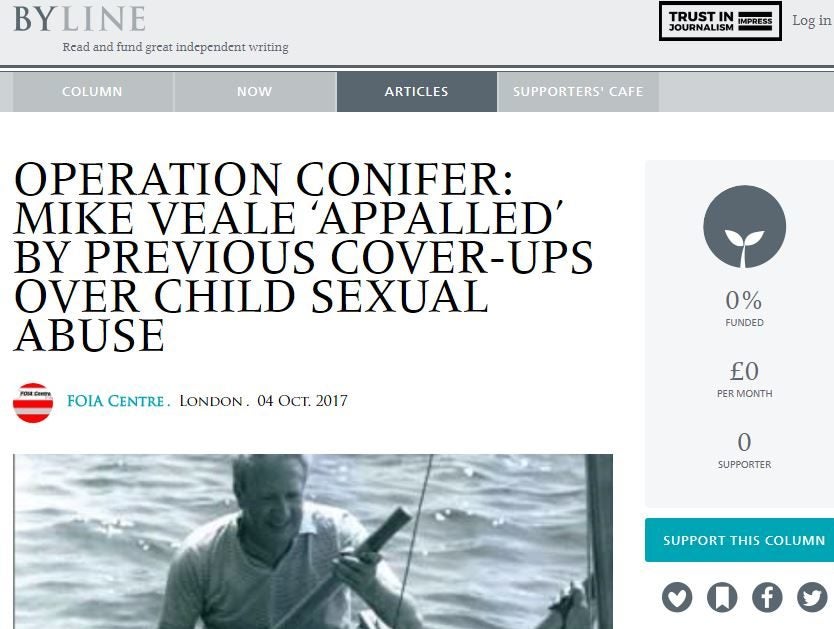
Mark Watts, former editor of defunct investigative news outfit Exaro, has labelled press regulator Impress “a shambles” after it ruled against an article on Ted Heath he had written for Byline.
Impress said the article breached its standards code by using an image of the former Prime Minister in a boat with a teenage boy alongside an article about a police investigation into child sex abuse allegations against him.
The Complaints Committee said that “accompanying it with text which implied that it had direct significance to the substance of that investigation, when that was not the case, amounted to a significant inaccuracy.”
Impress also found that the details of where and when the picture was taken were inaccurate and a later update an insufficient correction.
The article on Byline encouraged readers to click through to a link to a “better crop” of the picture on the FOIA Centre’s website, where it was also published, and to come forward with any information about the photo.
The FOIA Centre specialises in stories based on research obtained under Freedom of Information requests and has Watts as its co-ordinator.
In an update to the story on the FOIA Centre website, Watts said the finding against the article on Byline was “wholly absurd”.
He said: “The case has also exposed fundamental flaws in Impress’s practices and procedures. It reached an initial adjudication based, ironically enough, on serious falsehoods.
“In a further serious failing, it neglected to put key points to me for response, or, it turned out, even to Byline.
“After I drew these errors to the attention of Impress, it failed to ensure that its second attempt at an adjudication was not seriously compromised, in particular by its first go.
“Impress even failed to notify me of its ultimate adjudication. I only found out when someone else told me about it the day after its release. Impress is a shambles.”
Impress chief operating officer Ed Procter told Press Gazette: “Impress managed the complaint investigation in accordance with its published procedures. Impress’s regulatory relationship is with publishers and not with individual journalists.
“Byline had a full opportunity to respond to the complaint and to respond to the proposed adjudication, which included comments provided by Mark Watts, the journalist who wrote the article.
“Following Byline’s response to the proposed adjudication, which also included comments from Mark Watts, a final adjudication was sent to Byline and the complainant, seven days in advance of publication.
“Full reasons as to why the article was found to have breached the Impress Standards Code are set out in the published adjudication”.
While at Exaro, Watts reported on an alleged paedophile ring involving high-profile public figures that led to a Met police probe into claims based on an Exaro source known only as “Nick”.
Watts came in for criticism after the investigation collapsed without making any arrests in March 2016. Exaro closed a few months later in July that year. Nick has since been charged with child porn offences.
Picture: Byline/screenshot
Email pged@pressgazette.co.uk to point out mistakes, provide story tips or send in a letter for publication on our "Letters Page" blog
